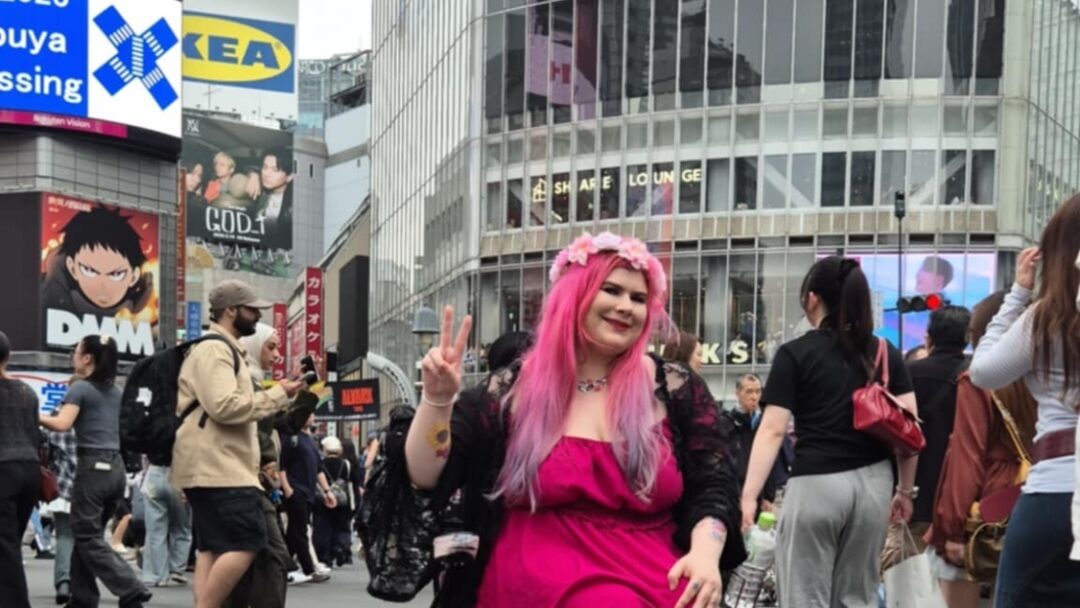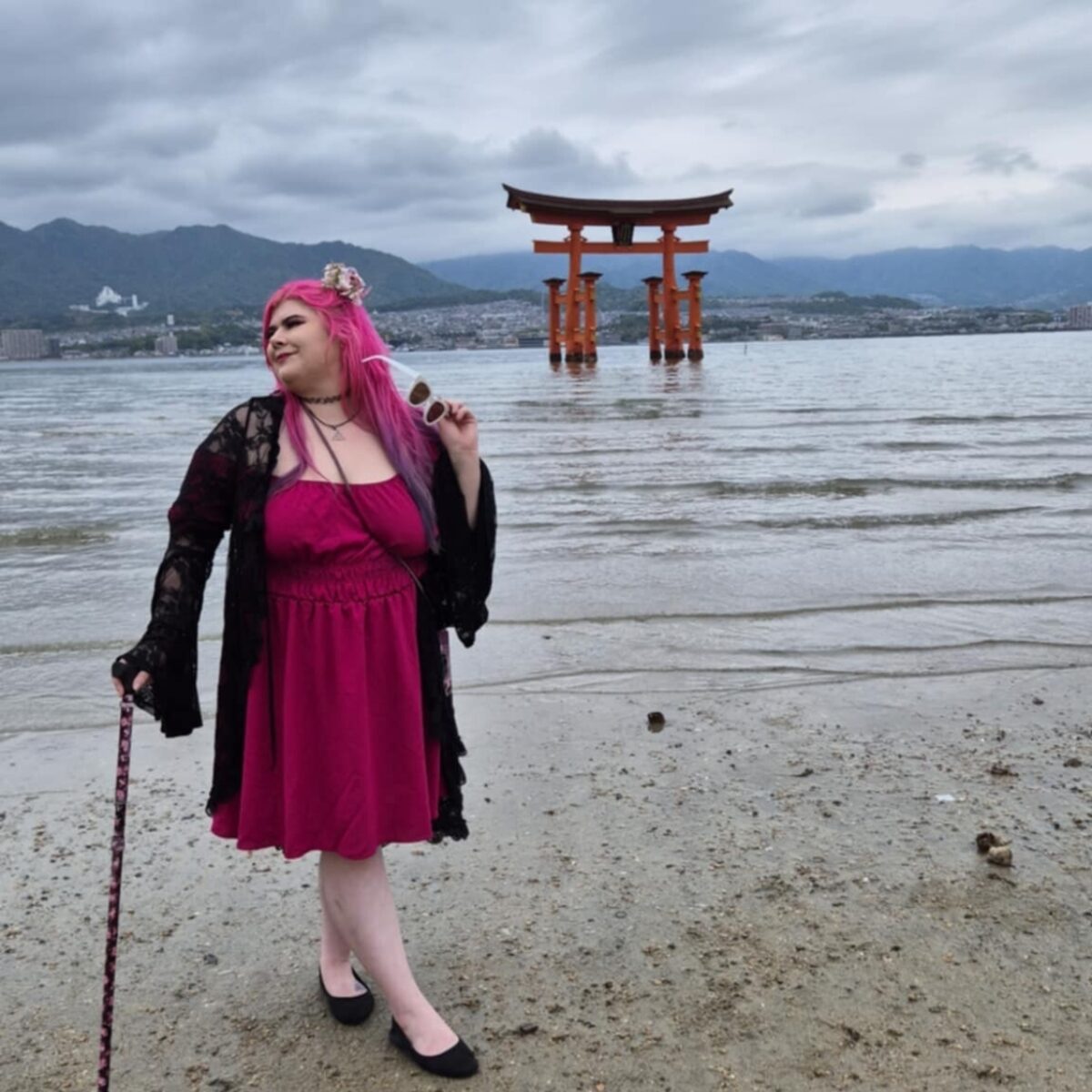Article
“Stop discriminating against us,”: The travel industry needs to remember disabled people exist.

For most people, going on holidays is an exciting time, filled with joy and adventure. But for disabled people, it’s an entirely different ballpark: largely because there is so much more to do—and we’re almost never considered in the travel industry, so we have to fight for our needs and hunt for places that consider accessibility. Even places that claim to be accessible aren’t. There are always a billion hoops and obstacles to jump over. And quite frankly, it’s exhausting.
I just got back from a trip overseas to Japan and South Korea. Going overseas is something I usually can’t afford, so it was such a wild concept for me that I could go—especially now that I live with multiple disabilities, and am an ambulatory wheelchair user. Travel is much harder, and much more complicated. And I can’t help but get frustrated when non-disabled people don’t consider us—and non-disabled travelers have no idea what we face.
For my friend, going overseas simply meant looking at flights and hotels, comparing prices, and packing a bag.
For me, it was months and months of preparation and stress. I had to consider: is this hotel accessible? Is it reasonable distance from a station? Is public transport accessible? Will there be enough room to park and move my wheelchair in tiny Japanese rooms? Is their claim of wheelchair accessibility correct?
But it’s not just panicking about where I’m staying and where I’m going—although finding accessibility information is always so difficult, particularly when a lot of people in the travel industry don’t even know what accessibility is.
You have to research every little thing and find out if you’ll actually be able to get in the door.
It also means you often have to contact every individual place—not just for accommodation purposes, but anywhere you want to go: shops, theme parks, tourist attractions, temples.
And on top of that, there is a lot more preparation into just going to another country. For example, I have various medications that are often on restricted lists: and the information isn’t always clear, particularly if it’s in another language. It took months of research to work out who to contact, and what information I needed to supply them. I contacted around five of my medical team and specialists to provide letters and approvals, ensuring everything was in correct packaging. Wildly, even my medical team didn’t have the correct information. Different teams had different information and different medication, so it was a lot of going back and forth between different teams in order to have the correct information. And then when it came to ordering the medication, it was also a nightmare: TGA approvals weren’t done correctly, so things needed to be re-done, and re-done again. And on top of that, I then had to go back to all my medical professionals to get THEM to change my information. Again. And that’s not even taking into consideration the actual application process of bringing medication into a country! Not to mention having to do applications and dangerous goods approvals for my wheelchair for every single flight, and encountering staff at the airports who have no clue about the processes (especially in Australia, I’ve found).

Every country is different, and I found Japan’s process to be relatively simple: emailing the airport you’re landing at. But South Korea listed several different processes, so I eventually had to contact their Narcotics Department (twice) to get the right info. Unfortunately, I couldn’t bring some of my medication. And that’s another huge struggle no one recognises for disabled travel: we can’t always take the medication we need. Or if we can, we have to jump through countless hoops and red tape to do so, or risk going to jail in a foreign country.
After several months of planning and applying (not to mention all the usual things you have to do to prep for a holiday), by the time my trip came around, I was exhausted. But I was also terrified. Because it’s not just the administrative burden and frustration that is challenging: it’s how airlines treat you when you fly.
And this is just something non-disabled people don’t remotely think about.
Qantas has broken or damaged my wheelchair FOUR TIMES in the past few years. And aside from my mobility aids being broken, I’ve also been treated like a child, treated like an inanimate object, and am constantly touched without my permission, as if my rights do not exist.
“Well, hey there sweetie, can you walk?” One airport staff member asked me once. I’m a grown ass woman, do not call me sweetie. And if I’m sitting in a wheelchair, you can take the answer as “no, not right now”.
And when they do harm you, it’s such a fight to get justice. For example, I’ve been waiting over a month for Qantas’s repairs for their most recent damage. Many people don’t get their chairs fixed at all. I only do because I am a squeaky wheel, and make sure to put media pressure on them to do better. We’re treated like annoyances, rather than experts who could actually make air travel better and more accessible.
And sometimes, they won’t even let us on the goddamn plane.
Yes, that has happened to me. Once when I was trying to fly to Vietnam, the airline told me I couldn’t go because I had an electric wheelchair—and “had” to have a support person with me. They said I couldn’t bring my battery, they had no lifts (only stairs) and their policy was that a disabled person couldn’t travel alone. I didn’t even get a refund. Their offer of a refund—that I would have had to pay a fee for—was a voucher for their services. WHICH I COULDN’T USE.
It makes me want to scream.
Disabled people deserve to be able to travel like anyone else—without being harmed, without our legs being harmed, and without destroying your very being just to jump through all the hoops so we can be allowed to travel.
Honestly, the non-disableds have no idea.
I wish they did.
I wish our voices were prioritised in this space. I wish airlines and hotels and anyone else in the travel industry would just hire a disabled accessibility consultant (I’m available). A few small tweaks would make a huge difference, and even just having non-disabled people aware of our struggles would go along way. Maybe they could help us fight.
Only . . . I wish it didn’t have to be a fight.
All I wanted was a holiday.